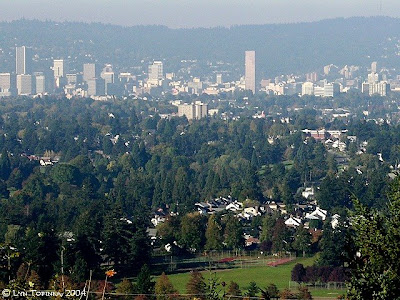 In my third year of undergraduate studies, my Ecology instructor offhandedly mentioned the book Ecotopia by Ernest Callenbach, as something to read if you want to see a potential model of ecological urbanism. While I was toying with my youthful and newly formed consciousness about an ecological ethic, I was both rapt and appalled.
In my third year of undergraduate studies, my Ecology instructor offhandedly mentioned the book Ecotopia by Ernest Callenbach, as something to read if you want to see a potential model of ecological urbanism. While I was toying with my youthful and newly formed consciousness about an ecological ethic, I was both rapt and appalled.
Rapt, by the powerful descriptions of the west coast utopian vision sketched out by Callenbach. Appalled by the bad literary devices, wooden plot, and 70’s hippy subculture reference in the book. Either way, it was a formative experience that I dare say galvanized my world and work since. Is it an accident, based on this story, that I travelled west to Portland after graduation in 1997, looking perhaps for some of the ecotopian spirit. And I think, in a way, I found it.
Last week the NY Times verified my thinking with a recent expose of the re-emergence of the novel’s popularity, over some 40 years later: “Ecotopia,” a 1970s cult novel, originally self-published by its author, Ernest Callenbach, that has seeped into the American groundwater without becoming well known. The novel, now being rediscovered, speaks to our ecological present: in the flush of a financial crisis, the Pacific Northwest secedes from the United States, and its citizens establish a sustainable economy, a cross between Scandinavian socialism and Northern California back-to-the-landism”

:: image via Columbia River Images
There have been myriad references to Ecotopia through my years here in Portland, in non-profits, articles, groups, chants – you name it. In the guise of Ecotopia, bioregionalism, and the United States of Cascadia, along with an occasional bumpersticker pleading for succession from the union – the spirit is here. As the article points out, many of these things referenced in the book are true, in some form or another… “White bicycles sit in public places, to be borrowed at will. A creek runs down Market Street in San Francisco. Strange receptacles called “recycle bins” sit on trains, along with “hanging ferns and small plants.”

:: image via Intelligent Travel
“The green movement’s focus on local foods and products, and its emphasis on energy reduction also have roots in “Ecotopia,” he said. In fact, much of Portland, Ore., with its public transport, slow-growth planning and eat-local restaurants, can seem like Ecotopia made reality.”

:: image via SLOG
I picked up my old copy a few years ago, and found it just god awful… The NY Times assessment: “Set at what seems to be the turn of the 21st century, and told through the columns and diaries of a reporter from the fictional New York Times-Post, the novel is not especially literary. Its characters are flat; its prose — well, call it utilitarian. And the plot, in which the narrator drops his skepticism and settles into Ecotopian life, thanks in part to a love interest, lacks sophistication. And yet the book has managed to find its place in the here and now.”
Much like Portland the novel is pulpy, self-congratulatory, smug, sometimes misguided and racist – much the flaws that exist in Portland. While both may be rife with flaws, it is the big picture and intent that is the point. As Callenbach points out: ” “Ecotopia” is a blueprint for the future. “It is so hard to imagine anything fundamentally different from wht we have now,” he said. “But without these alternate visions, we get stuck on dead center.” Give it a try… spend some time with William Weston and the whole gang. It may change your life, or at least open your mind to a possibility. And then, swing through Portland… and see at least a glimpse of the some nascent form of Ecotopia on the streets – just don’t call it that when you’re here. We hate that.
Queries for Ecotopians and Free Cascadia Citizens:
How many people can the food production of the Williamette Valley support?
Is the Grand Cooley Dam’s energy production (6809 MW)necessary for the economic future of an independent Cascadian state?
What are the geographical borders of this proposed nation-state? It’s political borders?
Just wondering.